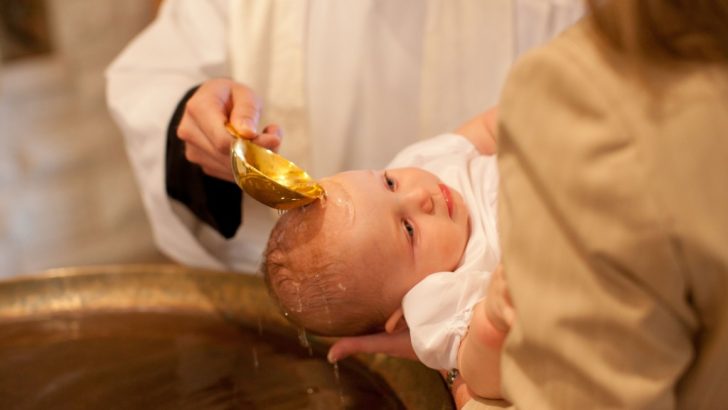The Notebook
I am ordained almost 34 years and for over 30 years of that time, I have been doing baptisms all wrong. For that first 30 years, nearly every baptism I did was private. Parents would ring me with the news of a birth and I would make arrangements with them alone.
When baptism day came around, I would usually be the sole representative of the parish present. Sacristans left it to me to turn on lights and heat and have the materials ready in place. Apart from the note in the parish newsletter, the parish generally had little awareness that baptisms were ever taking place in the local church.
Once a year, I would make a big effort to find a baby for the Easter vigil or Easter Sunday morning Mass. But because baptism was seen as a private matter, celebrating the event at a public ceremony seemed too much of a spectacle for many, and all sorts of arguments were produced as to why it was impractical.
Over those 30 years, I noticed how private faith became. Those participating in the baptisms seemed to be doing something for themselves, with no wider consequence. Often these partipants disappeared from church view for the seven years until First Communion. The baptisms I participated in rarely resulted in active participants in the parish. Private faith followed on from private baptisms.
Different perspective
A few years ago, I became aware of a different perspective. In the parish to which I was assigned in 2012, identity is a vital matter. We are a small rural community in the hinterland of big towns, so it is important for us to have our own identity. Baptism, I discovered, contributes to this. Baptism teams were formed, with the purpose not only of catechising the young children and their families, but also of assimilating the new young families into the local community. Not only will this benefit the parish, but it will equally keep the local school well supported, as well as the GAA etc.
Baptisms today are far from private. They take place once a month (only) and often involve a few families. Baptism team members attend the ceremony on behalf of the parish. Often the particular Saturday doesn’t suit a family, so they are also offered the option of having their baptism at any Sunday Mass. These events go down a treat, as some parishioners would never be at a baptism apart from those during Saturday evening or Sunday morning Mass.
(Time constraints are served by anointing the baby with the oil of catechumens beforehand and by making sure Holy Water is available. The congregation renews its baptismal promises with the baptism family and the key ceremonies of the sacrament follow: water, Chrism, the white garment, candle and the ephphatha. Then we stand and pray for them in the Bidding Prayers and once the collection begins everyone knows it won’t be long more!)
And private baptisms are a thing of the past – and hopefully private faith too.
What is a baptism team?
Parents are the best experts at talking to parents: they have the experience. In our parish, baptism arrangements are made with the parish secretary, who tips off the baptism team. Then two parents from the team visit the family. They bring information abut the sacrament and about the parish (always on the lookout for volunteers). They come along to the ceremony to help the young parents (organising readings, music, etc.). One promise we have made is that when more than one family is involved in baptism ceremonies, there will be music. It makes it!
When needs must…
I was spoiled in my first parish. The sacristy was equipped with everything! In my second parish of three churches, things were more haphazard. I will never forget my first baptism. I found myself with a full church — but no holy oils!
A visit to the nearest house produced no olive oil, but three options — diesel, suntan oil and Johnson’s Baby Oil. In desperation, I took the latter — and for many years after, there was a bottle of consecrated baby oil in the sacristy (don’t tell the canon lawyers!). Thank God the Church always ‘supplies’ when we, her ministers, fail.



